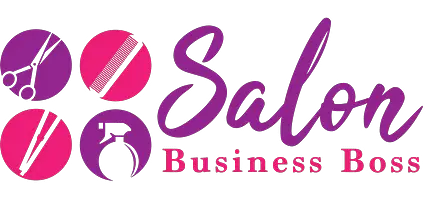All small business owners must register their businesses in order to operate legally within their states, but who must they register with? This is an important question to consider when preparing to start your own salon. Thankfully, the answer is fairly straightforward.
To open your salon, first, you will need to select your business structure, which affects how you register your business with your state. You will then need to file with the IRS and your state’s revenue office to get your federal and state tax IDs.
While the steps required for registering your new salon may seem intimidating, it is a process that you, as a business owner, can do without much difficulty. Read on for more details to help get you started.
Selecting your Business Structure
Before registering your salon, you will need to determine its legal structure, since this will also impact the way that you must register your business. There are many types of businesses to choose from, but most salons usually fall under one of three different options: sole-proprietorships, Limited Liability Corporations (LLCs), or Limited Liability Partnerships (LLP’s). Which one you chose can make a big difference for both you and your business.
A sole proprietorship is a type of business that is owned and run by a single person with no separation between the owner and the business. This is a popular business model for small businesses because the owner is entitled to all of the business’s profits, and it puts them in total control of the company, but there are some additional risks involved with this option. In a sole-proprietorship, if something goes wrong, that lack of legal separation between your personal property and the business can put you at a major disadvantage, both legally and financially. For example, if your salon goes into debt, there is nothing to protect your home or credit rating from being affected, and if one of your employees makes a mistake that brings a lawsuit, you will be personally liable. That isn’t to say that registering your business as a sole-proprietorship is a bad idea, especially if you are starting small, but many salon owners eventually chose to change to an LLC or LLP in order to separate their business from their personal lives, and to give their business a more professional edge.
A Limited Liability Corporation, on the other hand, can be owned by one or more people who are legally referred to as “members.” With an LLC, the business member or members are not personally responsible for the debts and liabilities of the company, though they may lose any money that they invest in the company if things go awry. That means that, if your salon goes bankrupt, your property is protected, and if the business faces legal action due to a mistake made by one of your employees, you are not personally liable.
The final type, the Limited Liability Partnership, is similar to an LLC, but it must be owned by at least two people. Not all states will allow you to open your salon as an LLP, because this business structure is often reserved for specific professionals such as doctors and lawyers, but it is a good option to explore if you plan on operating your business as a partnership with at least one other person. Both LLC and LLP offer similar advantages, though the LLC may be a more flexible choice, due to the fact that it can be owned by a single member, so you won’t have to re-register your business if you and your partner decide to go your separate ways.
Registering Your Business as a Sole-Proprietorship

Once you have decided on your business structure, it is time to register your salon with the state. This process varies depending on if you have chosen a sole-proprietorship, LLC, or LLP structure, though it is a fairly simple procedure, no matter which structure you have selected.
If you have decided that the sole-proprietor structure is right for you, then you will need to start by registering your salon name using a DBA (“Doing Business As”) certificate through your county clerk’s office. Doing so gives you legal permission to operate a business under something other than your given name. Registering a DBA also makes your sole-proprietorship more marketable, makes it easier for you to open business accounts with the bank and gives your salon more credibility.
Note that the only restriction on naming a business when using a DBA is that that you cannot end your company name with a corporation or LLC ending. For example, you cannot call your salon “Sally’s Styles, LLC,” when using a DBA. Keep in mind that, although there are no other rules you must follow when naming your business under a sole-proprietorship, it would be a good idea to check local restrictions for naming LLCs so that, if you decide to change your business structure in the future, you will not have to change your business name, as well.
Once you have registered your business name with your local clerk’s office, you can move on to the next step: getting your federal and state tax IDs.
Beauty Supply Store Inventory List
Registering Your Business as an LLC or LLP

When registering as an LLC or LLP, you will need to look at your state’s rules for restricted words before choosing your salon name, then check to make sure that no other businesses are already operating under that name within your state. Once you have chosen your salon name, you will need to designate a registered agent. A registered agent is a person who lives in or a corporation that operates out of the state you will be doing business in. Their role is to receive all legal documents that are related to your business, including any paperwork that is generated if your company is involved in a lawsuit. You or your business partner can choose to take on this role yourselves, or you can use a local registered agent service that is made up of people who are specially trained to fulfill this important role.
After you have chosen the name and designated the registered agent for your LLC or LLP, you will need to file an article of organization with your state. An article of organization (sometimes called a certificate of organization) is used to register your company’s basic information, including the business name and address, and your registered agent’s information with your state’s business filing agency. For more information on your state’s unique article of organization requirements, visit https://howtostartanllc.com/what-is-an-llc-operating-agreement and select your location from the drop-down box.
Once you have completed this process, you can then register for your federal and state tax IDs.
Getting Your Federal and State Tax IDs
After either registering your Doing Business As certificate or filing your article of organization with your state, the next step for any type of business is to register with the IRS in order to get your Employer Identification Number (EIN). Your EIN will function like your company’s Social Security Number and is needed for tax purposes.
Applying for an EIN is a fairly easy process and can be done online through https://www.irs.gov/businesses/small-businesses-self-employed/apply-for-an-employer-identification-number-ein-online. It is free to apply, and you will be able to save and print your EIN as soon as your form is validated. Please note that you must complete the application in one session, and the website will time out after fifteen minutes of inactivity, so you will need to make sure you have a few uninterrupted minutes to complete the process.
Now that you have your EIN, you can register your salon with your state’s revenue office in order to get your state tax ID. This process is very similar to the EIN application, but it differs depending on your location. To find your local regulations, you can visit https://www.irs.gov/businesses/small-businesses-self-employed/state-government-websites and select your state. From there, you can scroll down to the “Taxation” subheading, where you will find a link to your local department of revenue services. There, you can access useful information about your state’s tax ID requirements, along with the application form. You may be able to fill this application out on your computer, but some states do still require you to print and mail it rather than submitting it online.
As you can see, registering your business with the proper state and federal offices is a fairly simple process. With a little time and planning, you will be ready to ready to open your new salon before you know it!
Related Questions

Should I get a DBA certificate if I am registering my business as an LLC or LLP?
When you register for your LLC or LLP, indicating your business name is a part of the process, so the Doing Business As certificate is not necessary, though some businesses of this structure do chose to obtain a DBA, either when opening a second location under a different name, or if they want their sign or business cards to be more simplified than their full company name (for example, using “Christie’s Cosmetology” in place of “Christie’s Cosmetology Services, LLC.”).
Do I have to file for my EIN and state tax ID numbers by myself, or can I hire someone to do it for me?
If filing for your tax ID numbers seems too intimidating for you, you can hire a service. Just keep in mind that many of these companies will charge you up to $75, while it is free if you decide to do it yourself.
Looking to start your own Salon? Get the documents you need to get organized and funded here.
Please note: This blog post is for educational purposes only and does not constitute legal advice. Please consult a legal expert to address your specific needs.

About the author. Entrepreneur and Salon Business Fan.
Hi! I am Shawn and I am a happy individual who happens to be an entrepreneur. I have owned several types of businesses in my life from a coffee shop to an import and export business to an online review business plus a few more and now I create online salon business resources for those interested in starting new ventures. It’s demanding work but I love it. I do it for those passionate about their business and their goals. That’s why when I meet a salon business owner, I see myself. I know how hard the struggle is to retain clients, find good employees and keep the business growing all while trying to stay competitive.
That’s why I created Salon Business Boss: I want to help salon business owners like you build a thriving business that brings you endless joy and supports your ideal lifestyle.


